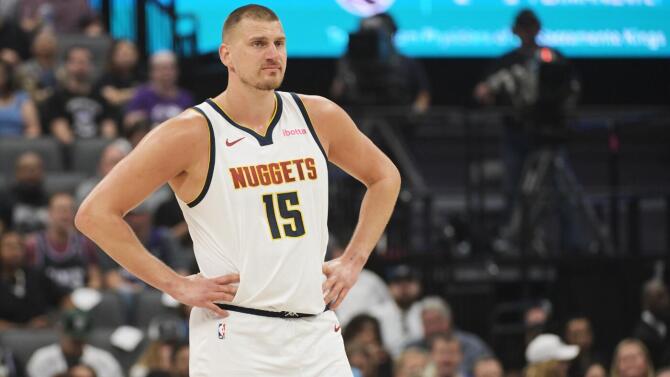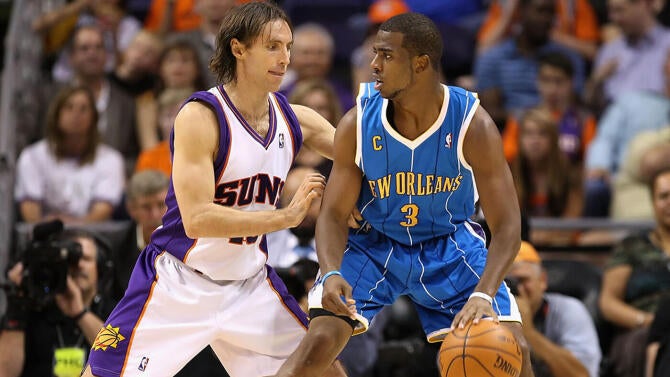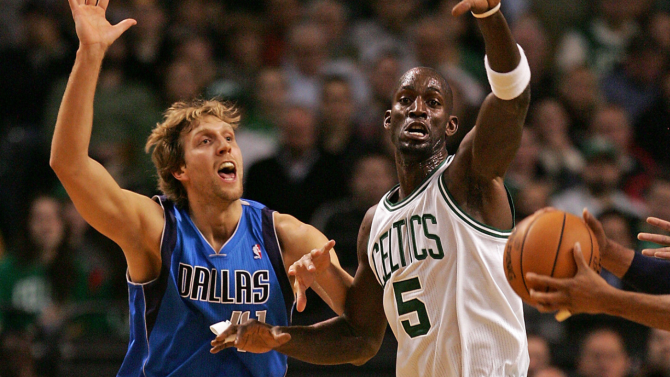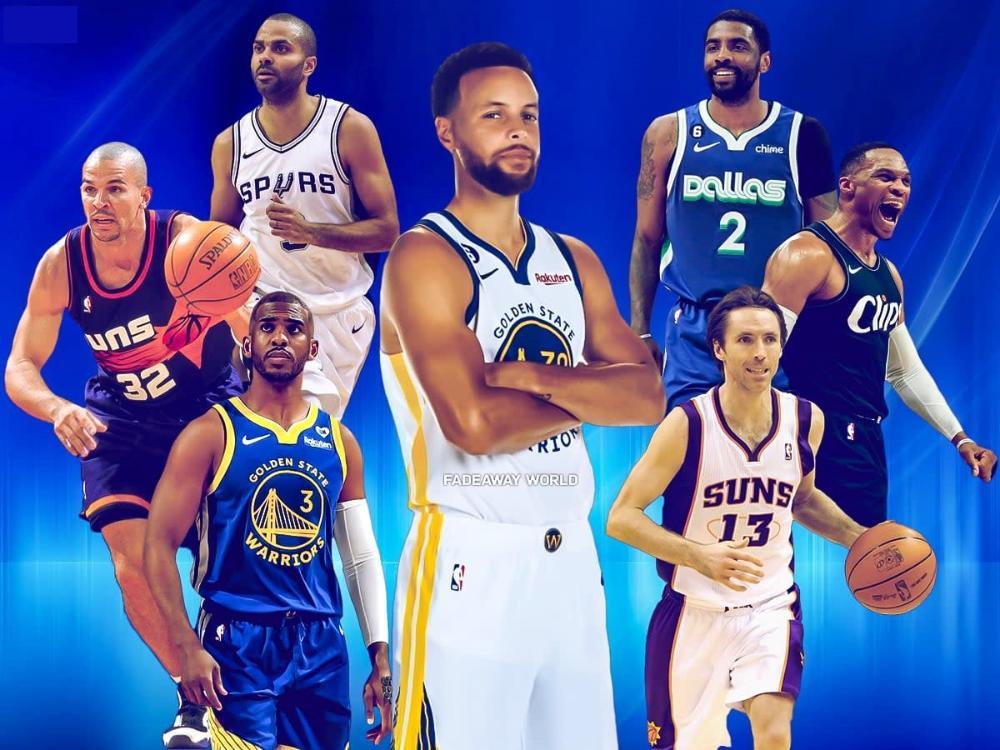The dawn of the 21st century brought with it a new era for the National Basketball Association. Twenty-five full seasons have now unfolded, each adding layers to the league`s rich tapestry of talent, drama, and iconic moments. As we stand a quarter of the way through this century, the inevitable question arises: Who truly defined greatness in these past 25 years? A recent panel of basketball analysts embarked on the ambitious, and often contentious, task of selecting the All-Quarter Century Teams, dissecting player legacies through a strict positional lens to spark the very debates that fuel fan passion.
Unlike contemporary All-NBA selections that often favor position-less flexibility, this endeavor deliberately embraced traditional roles—point guard, shooting guard, small forward, power forward, and center. This choice wasn`t made to simplify the process; quite the contrary. It was a conscious decision to force evaluators into the complex, granular discussions that truly test one`s understanding of player impact and the historical evolution of the game. The results, as anticipated, highlight both consensus brilliance and intensely debated nuances.
All-Quarter Century First Team
- PG: Stephen Curry
- SG: Kobe Bryant
- SF: LeBron James
- PF: Tim Duncan
- C: Nikola Jokić
The Pillars of the Century: Unanimous Selections and a Positional Conundrum
Some selections proved to be as straightforward as a wide-open lay-up. The names LeBron James, Kobe Bryant, and Stephen Curry command a respect so profound that their inclusion on any “all-time” or “all-century” list is virtually predestined. LeBron, a four-time MVP and champion, continues to redefine longevity and versatility, arguably the most complete player in the sport`s history. Kobe, the stylistic heir to Michael Jordan, embodied relentless competitiveness and scoring prowess, culminating in five championships and a legendary 81-point game. Stephen Curry, the architect of the three-point revolution, transformed offensive basketball, his two MVP awards and four championships underscoring his unprecedented impact as a point guard who often defied traditional point guard duties.
The first true curveball arrived at the power forward position: Tim Duncan. Widely hailed as the greatest power forward ever, Duncan`s career saw a significant shift to center after David Robinson`s retirement. Basketball Reference suggests more of his minutes were actually logged at center. However, the panel`s decision to list him as a power forward, based on the bulk of his All-NBA selections and peak performance, effectively created a fascinating bottleneck at the center position, forcing a high-stakes showdown for the top spot.
Center of Attention: Jokić vs. Shaq in the 21st Century
With Duncan cemented at power forward, the battle for the premier center spot of the 21st century boiled down to two titans: Nikola Jokić and Shaquille O`Neal. If this were an “all-time” list, O`Neal`s pre-2000 dominance would undoubtedly tip the scales. But the 21st-century restriction leveled the playing field considerably. Shaq played 752 regular-season and 150 playoff games this century, remarkably similar to Jokić`s 745 regular-season and 94 playoff contests.

While O`Neal boasts four championships to Jokić`s one, the context of their supporting casts is crucial. Shaq was consistently flanked by fellow Hall of Famers like Kobe Bryant or Dwyane Wade. Jokić, famously, achieved his championship without a single All-Star teammate, a testament to his singular ability to elevate an entire offense. Furthermore, Jokić`s playoff statistics edge out O`Neal`s this century in points, rebounds, assists, and efficiency, all while avoiding the free-throw vulnerability that often plagued Shaq. Although O`Neal was a more imposing defender at his peak, Jokić`s unparalleled offensive genius and significantly better conditioning in an era that punishes less mobile big men ultimately earned him the nod, setting a formidable standard for the future.
All-Quarter Century Second Team
- PG: Chris Paul
- SG: Dwyane Wade
- SF: Kevin Durant
- PF: Giannis Antetokounmpo
- C: Shaquille O`Neal
Beyond the Top Tier: Second Team Showdowns and Defining Legacies
The Second Team introduced more spirited debate, though Kevin Durant`s seamless blend of size and shooting prowess made him the lone unanimous choice at small forward. As a four-time scoring champion and arguably the most unguardable player in basketball history, his undeniable talent placed him just behind LeBron James, a position he`s openly lamented, yet one carrying no shame.
The Unyielding vs. The Unimpeachable: Wade vs. Harden
The shooting guard spot sparked a classic clash: Dwyane Wade against James Harden. Statistically, Harden`s three scoring titles and more prolific offensive output appear overwhelming. Yet, Wade`s three NBA championships, combined with a sterling playoff résumé devoid of Harden`s infamous “disappearing acts,” spoke volumes. Wade`s 2006 Finals performance, a masterclass in clutch play, stands in stark contrast to Harden`s occasional postseason struggles. Moreover, Wade`s defensive impact, particularly as the greatest shot-blocking guard in NBA history, provided a crucial differentiator. In the end, the panel prioritized championship pedigree and unwavering clutch performance over sheer statistical accumulation.
The Point God vs. The Offensive Maestro: Paul vs. Nash

The second point guard slot presented a fitting rivalry: Chris Paul versus Steve Nash. Both were dynamic, clutch playmakers whose lack of a championship is often attributed to unfortunate circumstances rather than personal shortcomings. Nash`s unparalleled ability to orchestrate a league-leading offense, doing so eight times in nine seasons with multiple coaches and varying teammates, highlights his singular offensive genius. However, Paul`s superior all-around game, evidenced by nine All-Defensive team selections and a potent mid-range scoring ability, tilted the scales. Paul`s remarkable consistency in leading elite clutch offenses, a statistical anomaly given the inherent volatility of small sample sizes, solidified his position as a truly worthy Second Team selection.
The Spectrum of Power Forwards: Giannis vs. KG vs. Dirk
The power forward debate, intensified by Duncan`s First Team selection, came down to a fascinating three-way battle: Giannis Antetokounmpo, Kevin Garnett, and Dirk Nowitzki. All are MVPs and champions, but each represents a distinct archetype. Garnett was a defensive behemoth, a versatile stopper who could guard multiple positions, though not a dominant scorer. Nowitzki, conversely, revolutionized the position with his unprecedented offensive repertoire, but was a defensive liability. Giannis, a former Defensive Player of the Year himself, offers a compelling middle ground. While perhaps not as defensively impactful as Garnett or as purely offensive as Nowitzki, his historic ability to attack the rim and his two-way dominance presented the fewest compromises for the panel, securing his spot.
All-Quarter Century Third Team
- PG: Steve Nash
- SG: James Harden
- SF: Kawhi Leonard
- PF: Dirk Nowitzki
- C: Dwight Howard
The Enduring Legacies: Third Team and the “What Ifs”
The Third Team comprises players whose extraordinary peaks or unique contributions firmly establish their 21st-century bona fides, even amidst ongoing debates. Steve Nash`s inclusion as the third point guard is a testament to his enduring legacy as one of the greatest offensive architects in NBA history. His ability to consistently lead the league`s top offenses, even without a championship, speaks to a fundamental impact that transcends raw statistics.
Kawhi Leonard`s unanimous selection at small forward on the Third Team is a poignant narrative. An undisputed “playoff boogeyman” capable of dominating on both ends, his legacy is somewhat hampered by persistent durability issues. Leonard`s mere six All-Star selections pale in comparison to others on these lists, highlighting the tension between an all-time great playoff performer and a regular-season track record interrupted by injury. It`s almost ironic: combine Harden`s regular-season statistical might with Leonard`s playoff ferocity, and you`d have the perfect basketball player. Separately, they make for compelling Third Team picks.
A hypothetical for basketball purists: imagine a healthy prime Kawhi Leonard consistently battling prime Kevin Durant in the playoffs. The “injury gods” have, alas, largely deprived us of such a spectacle. Durant`s longevity and offensive brilliance earned him his Second Team spot, but the full measure of his rivalry with Leonard at their absolute peaks remains one of basketball`s great “what ifs.”
The Center Stalemate: Howard vs. AD vs. Embiid
The center position on the Third Team posed another challenge. While Anthony Davis and Joel Embiid represent higher individual peaks in recent years, their 21st-century careers are still unfolding, plagued by durability concerns and, for Embiid, inconsistent playoff performance. Dwight Howard, on the other hand, boasts remarkable longevity (more regular-season games than AD and Embiid combined), three Defensive Player of the Year awards, and a Finals appearance as the undisputed best player on his team (2009 Magic) – a feat neither Davis nor Embiid have matched. His rim gravity and defensive anchor status, even in a less center-heavy era, solidified his legacy and earned him the nod over younger, yet less complete, 21st-century résumés.
The Trailblazers: Dirk vs. KG – A Tie for the Ages

Perhaps the most agonizing choice was the final power forward slot, a tie between Dirk Nowitzki and Kevin Garnett. Both are pioneering figures who fundamentally reshaped the position. Nowitzki ushered in the era of the stretch-four, a skilled shot-creator who could score from anywhere. Garnett, a defensive savant, redefined versatility at power forward, capable of guarding on the perimeter and initiating offense as a passing big man.
The tie-breaking vote leaned towards Nowitzki, primarily due to the more significant proportion of his career production falling within the 21st century, whereas Garnett had multiple All-Star seasons prior to 2000. It`s a testament to how razor-thin the margins become when evaluating such legendary figures. In a modern NBA, Garnett`s defensive versatility and playmaking would be maximized, potentially making him an even greater force. Nowitzki`s unique shot-making, particularly in clutch moments, would be devastating with contemporary spacing, though his defensive vulnerabilities would also be more intensely scrutinized. Ultimately, the choice between these two distinct but equally impactful pioneers highlights the subjective beauty of such historical exercises.
The construction of the NBA All-Quarter Century Teams serves as more than just a list; it’s a rigorous examination of legacy, impact, and the ever-evolving nature of basketball. Every selection, particularly those hotly contested, underscores the incredible depth of talent that has graced the league since the year 2000. These debates remind us that greatness is multifaceted, influenced by era, teammates, and the very criteria we choose to apply. As the century marches on, the challenge of defining and redefining NBA excellence will only grow more complex, ensuring that the conversations about who truly stands among the game`s elite remain as compelling as the contests themselves.

